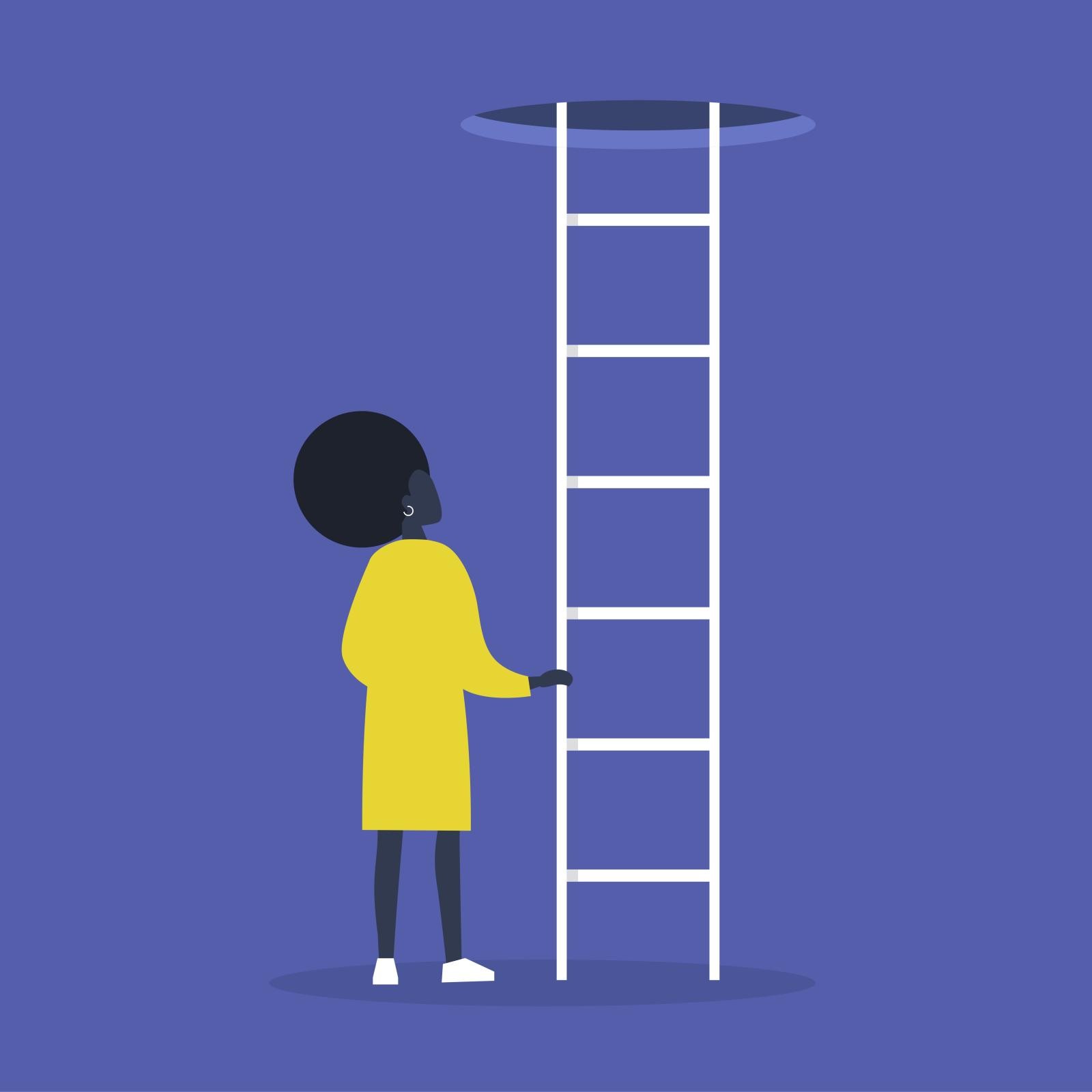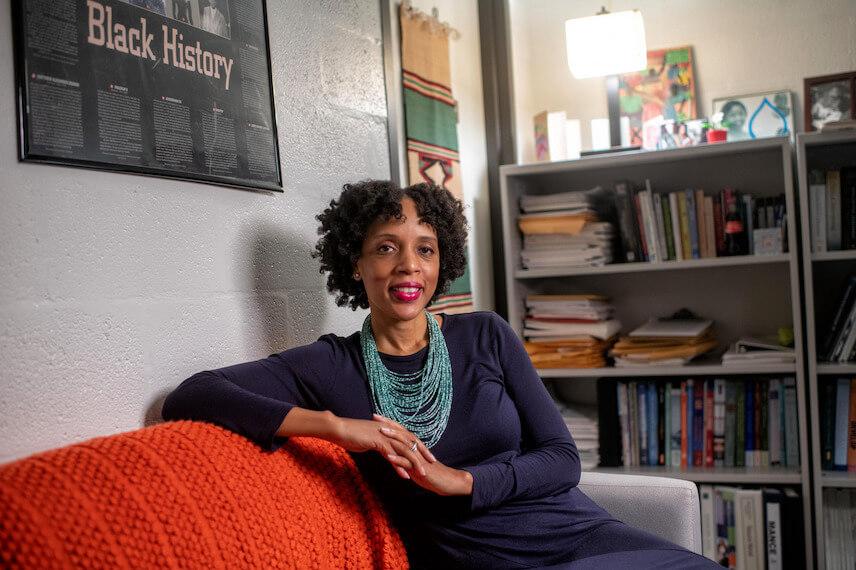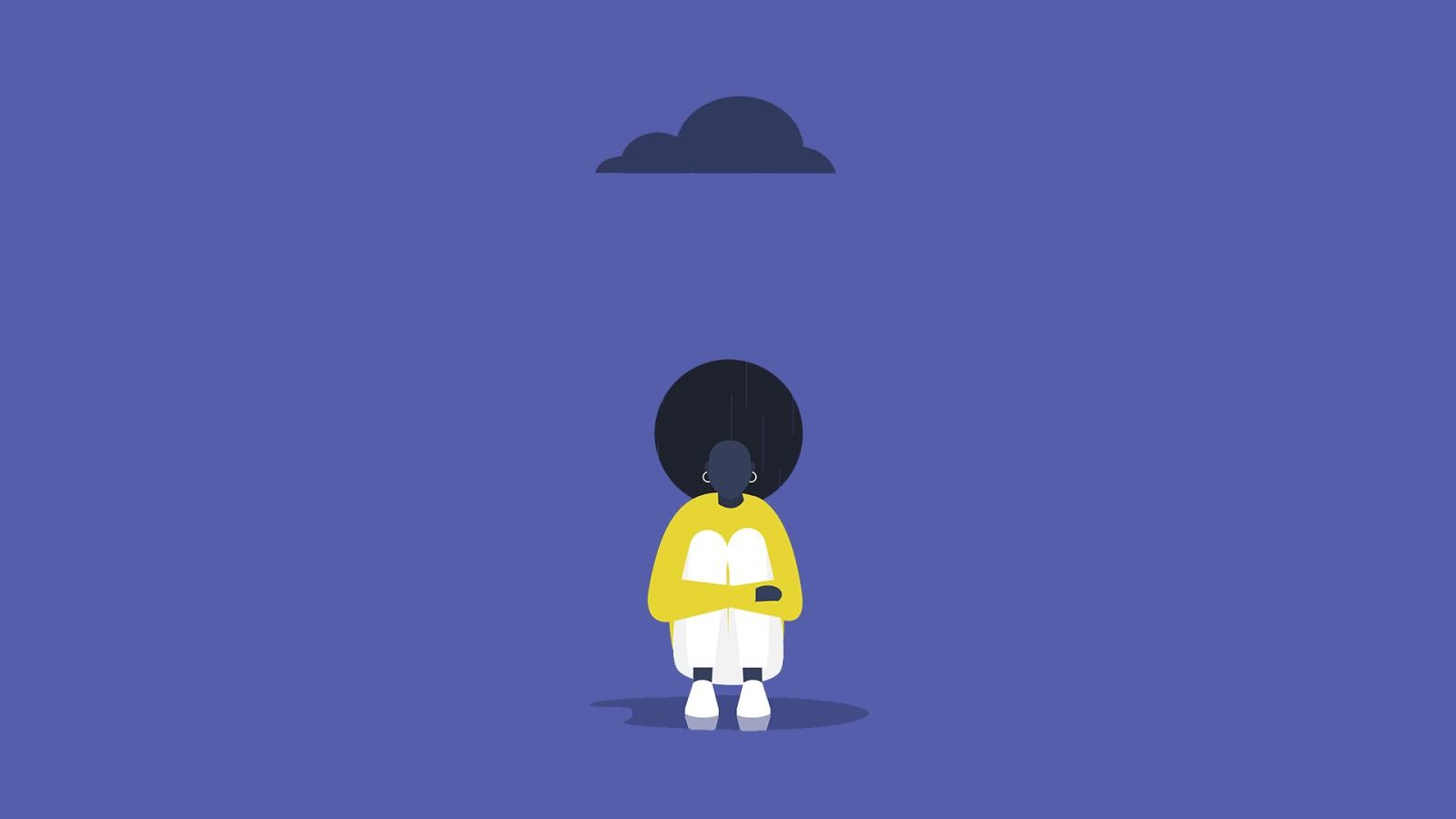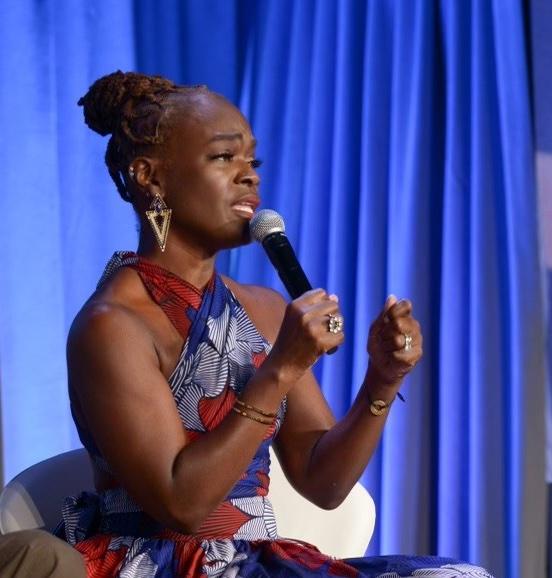On a morning in May 2020, GiShawn Mance, PhD, returned from a walk and checked her mailbox. Inside was a card from a close friend, Latisha, who had died unexpectedly just days earlier. “She was having headaches and went to sleep and never woke up,” recalls Mance, an associate professor of psychology at Howard University.
Soon, video would surface of George Floyd’s murder by police in Minneapolis, which sparked global protests for racial justice. Nearly eight months pregnant at the time, she was also readying for the birth of her child in a pandemic. She welcomed a daughter; then, her father’s cancer returned.
The weight of it all – navigating grief, inconsistent daycare, work responsibilities, doctor’s appointments, and racial stressors – led her to seek professional mental health therapy. “My anxiety had heightened because of everything that was going on with me,” shares Mance, who purposefully chose a therapist that worked with Black mothers. “I needed to talk to somebody.”
Black women have a storied and complicated relationship when it comes to their mental health. Despite being uniquely affected by conditions like depression, anxiety, and traumatic stress, they are less likely to get treatment. Comprehensive data is scarce. Still, when compared to their white counterparts, Black women are more than two times less likely to ask for help managing their mental health, according to a 2015 national survey by the Substance Abuse and Mental Health Services Administration (SAMHSA).
Understanding the reluctance surrounding Black women prioritizing their mental health means peeling back the layers of their lives — and the personal and racial traumas to which they are exposed.
A Mental Health Crisis Defined
For some, the reasons for seeking therapy – or not – may rest in a question not so easily answered. “If I seek help, what does that mean about me and my ability to handle all things?” poses Mance. Understandably, it can be a lot to unpack.
Within Black families and communities, the woman is often viewed as the backbone, capable of juggling motherhood, career, and countless other responsibilities; she is labeled a “strong Black woman,” even if it means sacrificing her emotional well-being.
“The strong Black woman feels that she cannot show pain or ask for help. She reflexively puts the needs of others first,” explains author and literary activist Marita Golden. In her recent book, “The Strong Black Woman: How a Myth Endangers the Physical and Mental Health of Black Women,” she states that this persona “requires that Black women perpetually present an image of control and strength.”
Being a woman who is also Black means there are multiple identities that people target, notes Alfiee Breland-Noble (BA ’91), MA, PhD, MHSc., founder and president of AAKOMA, a nonprofit dedicated to empowering Black, indigenous, people of color (BIPOC) and their families about mental health. So the anti-Blackness is real, she says, as is the anti-woman misogyny and gender discrimination. “We get that all rolled up into one.”
On top of that is the intergenerational impact from a legacy of slavery, in which it was literally punishable to stand up for yourself, Breland-Noble notes. “That’s in our DNA,” she says, and these factors can make it difficult for Black women to either actively reach out for help or feel comfortable doing so.
Studies show manifestations of chronic stress and depression include hypertension, or high blood pressure, a risk factor for cardiovascular disease. Black women suffer at disproportionately higher rates – 60% – compared to white women, according to statistics from the Health and Human Services’ Office of Minority Health. “We know that African American women are living in the midst of a health emergency,” Golden continues. “We have extremely high rates of diabetes, stroke, and heart attack, much greater than the percentage of our population would seem to dictate.”

Stress Shows Up Differently
Stress, anxiety, and depression manifest in some very unique ways for Black women, says Danielle Hairston (MD ’12), assistant professor in the Department of Psychiatry at Howard University.
They’re less likely to describe their feelings in these psychological terms that you hear with white people.”
“Black people are less likely to come out and say, ‘Hello, I’m feeling depressed. I’m feeling down,’” explains Hairston. Instead, body complaints and physical symptoms are more commonplace. Signs include exhaustion, lack of concentration or motivation, not caring about one’s job, or loss of interest in what’s happening in life.
“They’re less likely to describe their feelings in these psychological terms that you hear with white people,” Hairston points out.
Some people withdraw. Still others “go hard,” so to speak. Overworking, showing up for everyone, and staying busy is not unusual for Black women, adds Mance. “You’re not allowing yourself to slow down and to be and feel because if you do, then there’s the sadness or numbness,” she says, noting sometimes the person who’s the life of the party socially when alone settles into darkness and low-key isolation.
There may be other, unexpected behavioral changes as well. While most associate depression with loss of appetite, actually the opposite is sometimes true. Or anxiety and depression can surface as anger.
For Leslie Tarleton, those emotions stemmed from childhood. Her dad committed suicide when she was nine. Within six months, she received a Type 1 diabetes diagnosis. Tarleton remembers wondering why everything bad was happening to her. These experiences left her sad, angry, and overwhelmed, feelings that followed her into adulthood. “I was really angry at life. I would lash out,” she shares. At 24, she decided to seek professional help because, “I did have suicidal thoughts. But I knew I couldn’t do what he did.”
Finding Culturally Appropriate Care
Cultural beliefs, social stigma, and cost are all barriers to accessing mental health treatment. And so is the lack of mental health professionals with diverse racial and ethnic backgrounds; 3% of 41,000 psychiatrists identified as Black, according to data analyzed by Medscape. 4% of psychologists are Black, according to the American Psychological Association.
Article ID: 1091
Keep Reading
-

The Growth of Mental Health Awareness
With 1 in 5 adults in the United States experiencing mental illness, there is growing acknowledgement of mental health as an aspect of overall health.





